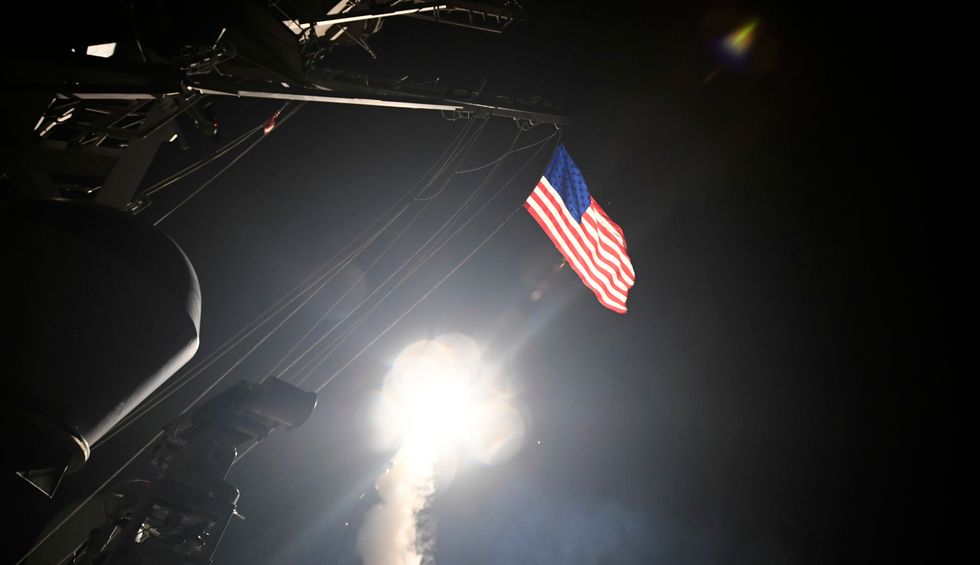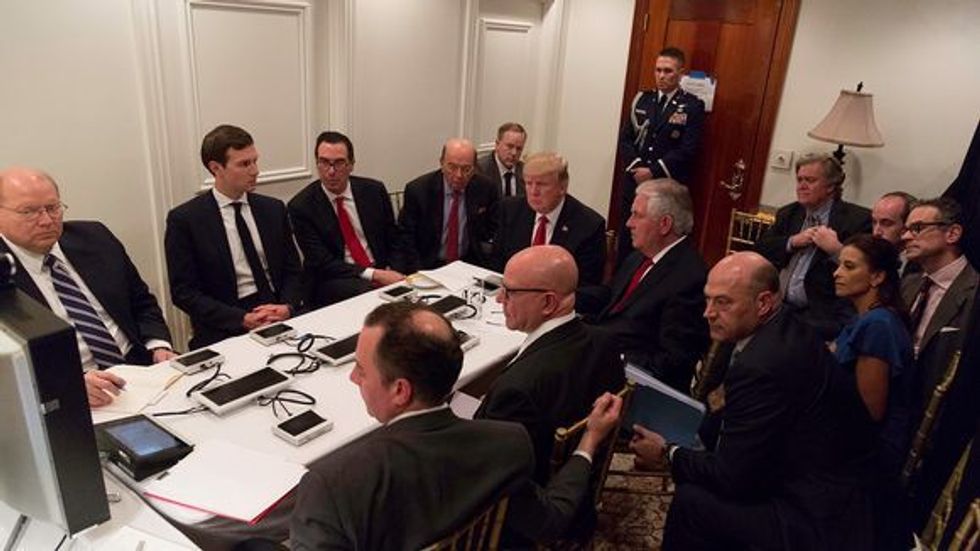On Thursday, April 6th, United States warships stationed in the Mediterranean fired fifty-nine Tomahawk missiles at the Shayrat Air Base in Homs, Syria. The strike is the first military engagement the US has waged against the Syrian government during its now six-year-long civil war. The attack came after the regime of Syrian President Bashar al-Assad used the banned chemical agent Sarin against its opposition, which killed over eighty-six people. US President, Donald Trump, spoke shortly after the attack and encouraged other nations to stop the bloodshed in Syria.
The decision of Mr. Trump to intervene in Syria is a stark diversion from previous American policy towards the war-torn nation. It has received divided responses from the international community as the UK supported it while Iranian and Syrian leaders decried it. The attack further risks the already shaky US relations with Russia, which has been a public supporter and benefactor of the Assad regime. Former President Barack Obama threatened military intervention in Syria by "drawing a red line" against it but proved to be indecisive when the Assad regime used chemical weapons against its citizens in 2013.
The Trump presidency has been beleaguered by scandalous accusations of several of its members having connections to Russia. Additionally, Mr. Trump has experienced difficulty getting his major programs, including the failed American Healthcare Act, approved by the Republican-controlled Congress. The retaliatory strike against the Syrian government is a blatant move on Mr. Trump's part to send a clear and strong message to both Russia and Democrats that he is separating himself from Russia and will not live under its influence. It also delivers an uncompromising tone to nations like Iran and North Korea, which Secretary of State, Rex Tillerson, said military force against could be suggestive of the fact that the US will not tolerate aggressive or bold behavior from them.
The long-term consequences of this strike are still unknown as it does not necessarily mean the beginning of a new military campaign or continuous involvement in Syria. However, the short-term effects of it are polarized. It strengthens and potentially re-legitimizes the Trump presidency as it removes the Russian argument from Democrats and ends a string of political losses for the President. However, whether such an engagement will be beneficial to the US or not is contingent on the inevitable response from Russian President, Vladimir Putin.




















